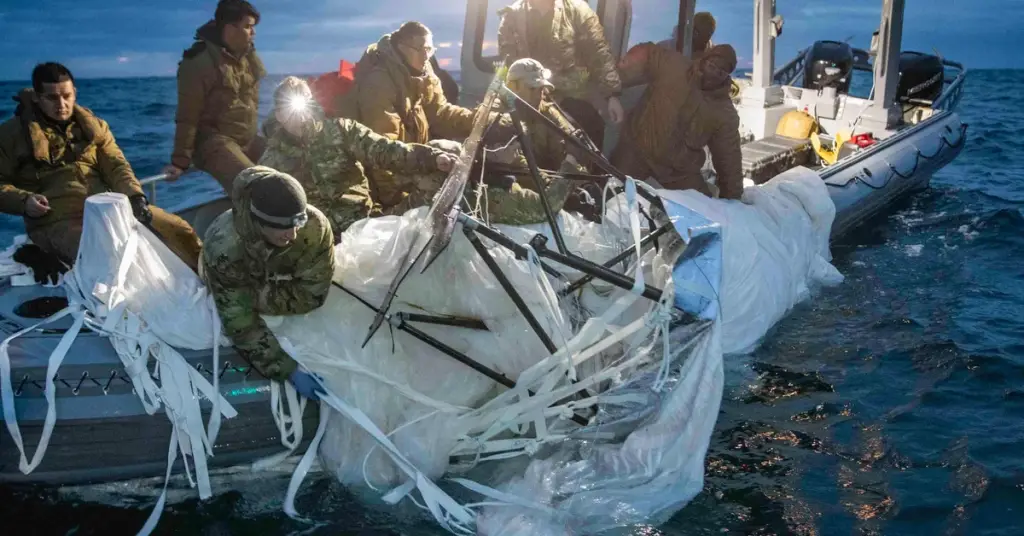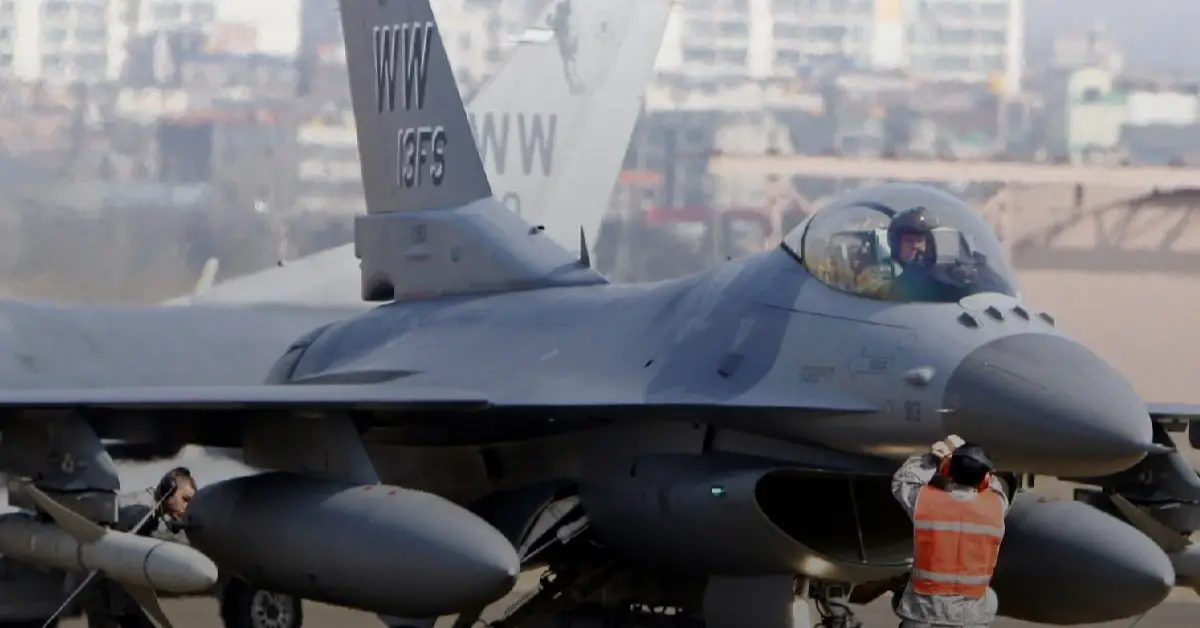A series of incidents involving Chinese nationals caught taking unauthorised photographs or filming near military bases in South Korea has raised alarms over potential espionage activities linked to Beijing. These events, some of which occurred near U.S. air and naval force installations, are contributing to growing concerns about China’s efforts to gather intelligence in a region already fraught with security tensions.
The situation has sparked debates about national security and the potential risks posed by foreign nationals visiting sensitive military areas in the context of heightened geopolitical rivalries.
The significance of these incidents cannot be understated. South Korea, like Japan and the Philippines, is a key American ally in maintaining regional military security in the Asia-Pacific. The recent detentions of Chinese nationals are a worrying sign of potential espionage and surveillance activities being conducted by Beijing, which has been increasingly assertive in asserting territorial claims in the South China Sea, East China Sea, and around Taiwan. The stakes are high as China challenges the U.S.’s military dominance in the region.
Moreover, these incidents are not isolated. In recent years, other Southeast Asian countries, including the Philippines and Japan, have reported similar cases of foreign nationals suspected of espionage, particularly involving Chinese nationals near military sites.
The fear is that these activities could compromise the security of the United States and its allies, amid growing tensions over territorial disputes and the broader strategic competition between China and the United States.
On April 23, South Korean authorities detained two Chinese nationals who were allegedly using high-end cameras to photograph planes near a major military airbase in Pyeongtaek. The two men were suspected of violating the Protection of Military Bases and Installations Act, which prohibits unauthorised photography or filming around military facilities. The detentions were triggered by a tip-off from U.S. military personnel stationed in South Korea, who had raised concerns about the Chinese nationals’ activities.
The two individuals had previously been warned for similar behaviour just two days earlier when they were spotted photographing planes near the same facility, Osan Air Base. Osan is a crucial hub for U.S. Air Force operations in South Korea and is home to the 51st Fighter Wing, which oversees a variety of aircraft, including the F-16 fighter jets and the A-10 Thunderbolt II, also known as the “Warthog,” a renowned attack aircraft used for close-air support missions. Given Osan’s importance to U.S. military operations in the region, any suspicious activity near the base immediately raises concerns about national security and espionage.
After detaining the two men, authorities conducted a review of the photos they had taken. However, the images, which were captured from public streets, were not considered a serious security threat. South Korean law does not classify photography from non-restricted public areas as a criminal offence unless there is concrete evidence of espionage activities. As a result, the men were released without facing prosecution.
This latest incident follows a similar case earlier this year involving two Chinese teenagers who were also detained for taking unauthorised photos at Osan Air Base and other military sites. The teenagers had arrived in South Korea just three days earlier on tourist visas.
They were found to have taken thousands of photos of military bases, airports, and other strategic locations. Initially, the students told authorities that photographing planes was simply a hobby. However, one of the teenagers revealed that his father worked for China’s public security bureau, raising suspicions that the teens might have been tasked with gathering intelligence for the Chinese government.
This revelation prompted South Korean authorities to investigate the teenagers more thoroughly. Although they were not immediately charged with espionage, the fact that they had begun photographing sensitive military installations almost immediately after arriving in the country added to suspicions that their activities may have been premeditated.
The teenagers’ actions are now under review by South Korean security officials, who are looking into whether they may have been involved in a broader intelligence-gathering operation orchestrated by China. The authorities are particularly concerned about the speed with which the teenagers began photographing high-security sites after entering South Korea. This factor makes their actions appear suspicious and well-planned.
South Korean law is clear on what constitutes an offence when it comes to photographing military sites. Under the Protection of Military Bases and Installations Act, photography or filming near military bases is prohibited only if the images are taken from restricted areas or with the intention of gathering intelligence.

If authorities can prove that the suspect was acting on behalf of a foreign government, such as China, they can face espionage charges. However, espionage charges in South Korea are only applicable if the individual is found to have been acting on behalf of an “enemy state,” which in the context of South Korean law typically refers to North Korea.
If a foreign national is found to be violating the Protection of Military Bases and Installations Act, they could face up to three years in prison or a fine of up to 30 million won (approximately $21,000). However, in many cases, like that of the Chinese nationals recently detained, the authorities may choose to release individuals if their actions do not directly threaten national security.
South Korean officials have been cautious in their statements, acknowledging that there is currently no concrete evidence to charge the detained Chinese nationals with espionage. However, a senior official working on the investigation told local media that the individuals’ actions, particularly their quick and immediate focus on photographing military assets, could suggest that their visit to South Korea was part of a broader intelligence-gathering mission.
The official emphasised that it is difficult to dismiss the possibility of espionage given the sensitive nature of the locations involved and the speed at which the individuals began photographing key military installations.
Experts are also weighing in on the matter. Some argue that such activities are part of China’s ongoing effort to monitor U.S. military movements in the Asia-Pacific region, particularly as the U.S. maintains a significant military presence in South Korea. Others argue that the detentions of these tourists should not be immediately equated with espionage, as there is still no definitive proof of intent to spy on behalf of the Chinese government.
The investigation into the Chinese tourists continues, and South Korean authorities are examining all the evidence to determine whether further action is warranted. With tensions continuing to rise between the U.S. and China, and China’s increasing military assertiveness in the Asia-Pacific region, South Korea and its allies are likely to implement stricter surveillance and security measures around military installations to safeguard national interests.
This incident serves as a stark reminder of the growing concerns over espionage in an era of heightened geopolitical tensions. As countries in the region, particularly South Korea, remain on high alert for foreign intelligence-gathering activities, the detentions of Chinese nationals are likely to be just one part of a much larger puzzle concerning security risks in the Asia-Pacific.
The growing number of detentions involving Chinese nationals near U.S. military bases in South Korea highlights the increasing challenges posed by espionage in the region. With China’s assertive foreign policy and its expanding military influence, the risks of intelligence operations targeting sensitive military sites are higher than ever.
As investigations into the detained individuals continue, the situation underscores the importance of maintaining vigilance and robust security measures to protect military assets in this critical part of the world.
Disclaimer: This article has been meticulously fact-checked by our team to ensure accuracy and uphold transparency. We strive to deliver trustworthy and dependable content to our readers.




